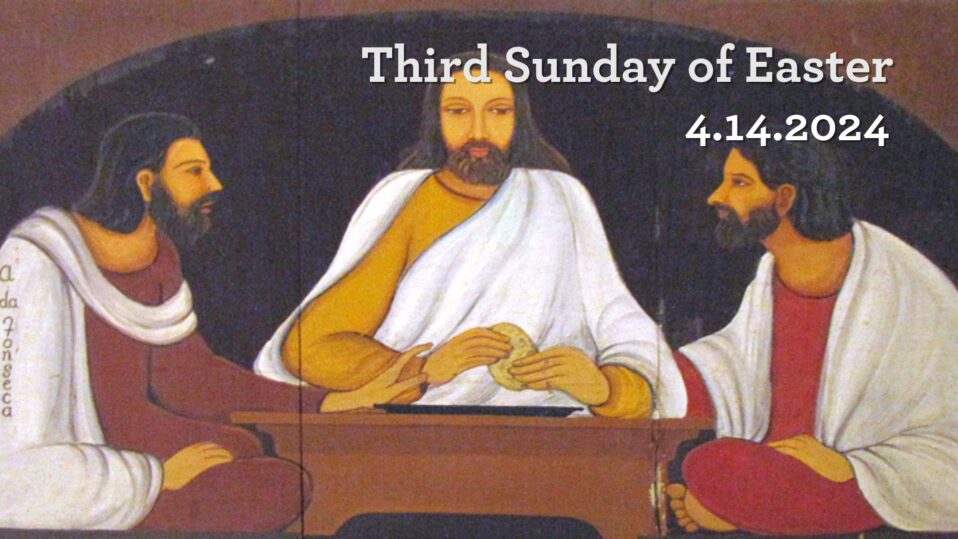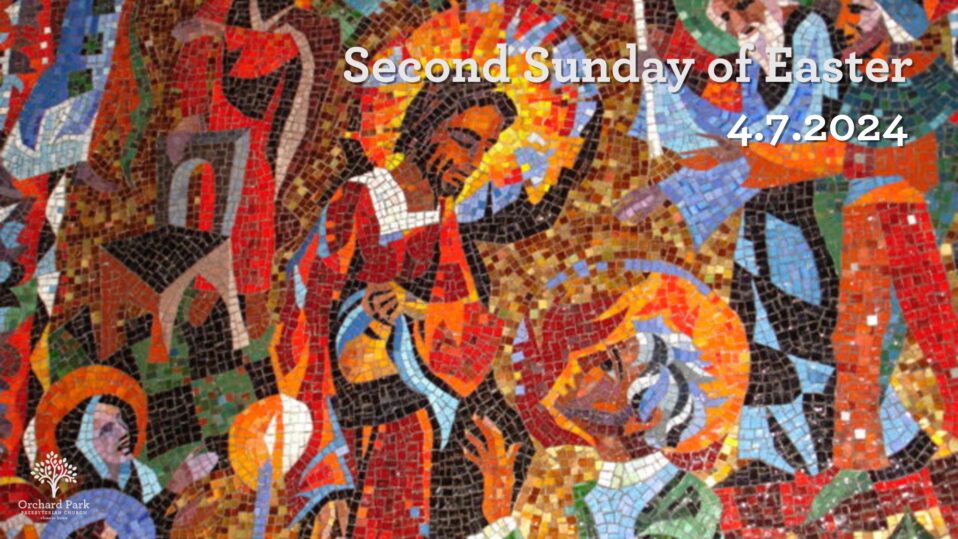Last Monday we went to the Eagle’s Concert with a sold-out crowd of fans. Don Henley opened the concert saying a few words including the statement we would “like to spend the next two hours singing some songs that take you away from the craziness of our world.” To which everyone applauded with gratitude.
That’s really the purpose of entertainment, isn’t it? To provide an opportunity to escape from the present day concerns and demands, to go somewhere else, feel something else, and simply have some enjoyment.
In 1945 Judy Garland sang the song, “That’s Entertainment.” The lyrics are really good, and I would love to share the whole song with you, but here’s a portion.
A clown with his pants falling down
Or the dance that’s a dream of romance
Or the scene where the villain is mean.
That’s entertainment!
The plot can be hot, simply teeming with sex.
A gay divorcee who is after her ex
Where a chap kills his father and causes lots of bother.
The clerk who is thrown out of work
By the boss who is thrown for a loss
By the skirt who is doing him dirt
Hip hooray! The American way
The world is a stage; the stage is a world of entertainment!
When living in a world that worships entertainment. We spend tons of money on it, we rely on it to make us feel good, we use it to escape our own reality and I dare say we couldn’t live without it. Just imagine a world without entertainment.
The church has caught on to this reality. The church has realized that if it’s not entertaining, no one will come. The church has bought into the idea that what we are doing here is a show where people come for an hour and listen to music, get some quiet time, get some words of wisdom about how to handle their personal lives and leave feeling good.
The theologian Soren Kirkegaard said that the worship is like the theatre, where there is a director, a performer, and an audience. People often think that the audience are folks in the pews, the performer are the musicians and the preachers and the director, is God, but that’s not the way Kirkegaard saw it, he said that the audience, the one for whom worship is for is for God and to God, the director, those put in the task of giving people the script, the setting and the space to perform are the musicians and the preacher, and the performer, the one tasked with expressing emotion, praise, and love is the congregation. The audience is God, the congregation are the performers, and the worship leaders are the directors.
The purpose of the church is not to provide good entertainment for people. It’s not a show. This is not a stage, and this room is not an auditorium. When worship becomes a performance, the relationship is two ways, just the people providing the entertainment and those receiving it. God is completely left out of that diagram. The purpose of the church, is to answer the first question in the Westminster Catechism, what is the chief end of man, or “what is our purpose?” The answer “to give Glory to God and glorify him forever.”
Our purpose is not to make ourselves feel good, look good, get good, or be good, our purpose is to glorify the Goodness of God. Put another way, our purpose is shining light on God not to shine light on ourselves.
Of course, the secret is that when you glorify God, you actually end up being lifted up yourself.
The problem is glorifying God requires putting God before ourselves, thinking beyond our daily needs, and wanting instant gratification. The problem is God doesn’t give us what we want we want it. The problem is God doesn’t escape the reality of the world, God is in the world, and that is where God calls us to be as well.
Our scripture reading this morning is a familiar one. There are two stories running along side each other. In one scene you have a group of people who are refugees looking for a homeland. Their past was slavery, the present is survival, and their future is uncertain. They are relying on this guy named Moses who has left them for a hike up the mountain and he hasn’t been seen for weeks. He was probably killed off by some lion, or maybe he fell off a cliff, or maybe he left them and decided to build a cabin in the woods. Who knows? He’s gone and they need some certainty that everything is going to be alright.
They do have a designated leader. Aaron, who is Moses’ brother-in-law. He has been left in charge. He hears these complaints and concerns and instead of praying and thinking, he starts doing and he comes up with an idea to make something gold and shiny for people to look at and feel instantly better. Things go from bad to worse, as they often do when people worship material things. His poor judgment leads the people to engage in revelry that includes drinking and debauchery.
Meanwhile up at the top of the mountain, God and Moses are having a conversation. God is looking through his looking glass and he sees all of this and the fact they are worshipping this golden trinket and God is offended. God says to Moses, I am done with these people, let me start over and get rid of these ingrates. Moses stands in the breach between God and the Israelites and says lets give them another chance. Remember this long history, remember everything you have been through with them, don’t give up on them. And God does something very human, very anthropomorphic, God changes his mind and says o.k., but I am not happy with them. – At all. Get down there and get them to shape up.
And Moses does just that. Now, things aren’t great after that. Here’s the rest of the story:
25 Moses saw that the people were running wild and that Aaron had let them get out of control and so become a laughingstock to their enemies. 26 So he stood at the entrance to the camp and said, “Whoever is for the Lord, come to me.” And all the Levites rallied to him.
27 Then he said to them, “This is what the Lord, the God of Israel, says: ‘Each man strap a sword to his side. Go back and forth through the camp from one end to the other, each killing his brother, friend, and neighbor.’” 28 The Levites did as Moses commanded, and that day about three thousand of the people died. 29 Then Moses said, “You have been set apart to the Lord today, for you were against your own sons and brothers, and he has blessed you this day.”
30 The next day Moses said to the people, “You have committed a great sin. But now I will go up to the Lord; perhaps I can make atonement for your sin.”
31 So Moses went back to the Lord and said, “Oh, what a great sin these people have committed! They have made themselves gods of gold. 32 But now, please forgive their sin—but if not, then blot me out of the book you have written.”
33 The Lord replied to Moses, “Whoever has sinned against me I will blot out of my book. 34 Now go, lead the people to the place I spoke of, and my angel will go before you. However, when the time comes for me to punish, I will punish them for their sin.”
35 And the Lord struck the people with a plague because of what they did with the calf Aaron had made.
The God of the Old Testament does not pull any punches. The God of the Old Testament is direct with high expectations. Now before we say, “well God changes in the New Testament and because of Jesus, we don’t have to think too much about the God of the Torah,” remember what Jesus is no pushover. Jesus is very clear that many are called but few are chosen, meaning God isn’t made for our own entertainment, we are made to glorify God.
I taught this concept in a confirmation class about 20 years ago and one of my confirmands didn’t like that at all. She said she thought that made it sound like God was greedy and selfish. Why should we give glory to God because he asks for it? She said. What is so great about God? She asked.
That’s the same question the Israelites are asking. Sure, God divided the red sea, that was cool to watch, and sure God got out us of slavery, which is awesome, and sure God makes sure we have food and what we need, but really, what has God done for us lately, they ask.
To glorify God, to give God glory, is not just to praise him, give thanks to him, or feel good about him. Giving God glory is not just about the rainbow at the end of the story, or the miracle of the empty tomb. Giving God glory is about loving him enough to want to have a relationship with him, about wanting to live your life, the good, the bad and the ugly, with him, confessing your temptations, asking for redemption, looking for hope, and receiving grace. Giving God glory is about life. The way we treat others. The way we treat ourselves. The way we treat the planet. The way we treat our society. Giving God glory is about living in a place where you know where you came from, and what you were slave to – maybe money, or sex, or a substance, being set from that temptation, realizing that you don’t know where you are going, but trusting that the God who releases from slavery will lead you where you need to go.
Giving God glory is about putting your trust in a shepherd who will lead you through dark valleys, beside still waters, and will restore your soul.
Finally beloved, whatever is true, whatever is honorable, whatever is just, whatever is pure, whatever is pleasing, whatever is commendable, if there is any excellence and if there is anything worthy of praise, think about these things.
4:9 Keep on doing the things that you have learned and received and heard and seen in me, and the God of peace will be with you.
To God be the glory, for ever and ever.
Amen.
Rev. Dr. Shelly Wood



